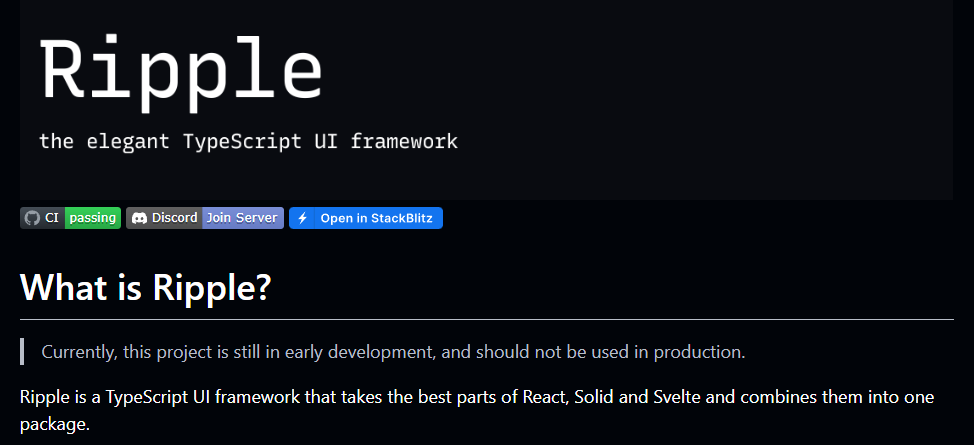[Dev Catch Up # 78] - Claude for Chrome, OAuth Explained, uv format, Ripple, How to write clean function, Google's stax, Claude-Checkpoints, how to contribute to OSS Projects and much more!
Bringing devs up to speed on the latest dev news from the trends including, a bunch of exciting developments and articles
Welcome to the 78th edition of DevShorts, Dev Catch Up!
For those who joined recently or are reading Dev Catch Up for the first time, I write about developer stories and open source, partly based on my work and experience interacting with people all over the globe.
Thanks for reading Dev Shorts! Subscribe for free to receive new posts and support my work.
Some recent issues from Dev Catch up:
Join 8000+ developers to hear stories from Open source and technology.
Must Read
Anthropic announced Claude for Chrome. It comes as a Claude extension for Chrome where users can instruct Claude to take actions on their behalf within the browser. The rollout starts with 1,000 Max Plan users. Read Anthropic's announcement to know more details about this.
OpenAI launched advanced speech-to-speech model called gpt-realtime. They also enhanced their Realtime API with new features. The API now supports remote MCP servers, image inputs, and making voice agents more capable. Read OpenAI's post to learn more details.
While exploring authentication systems, I came across a guide on OAuth. OAuth is widely used by applications for user login. It lets users sign in securely without exposing their passwords. This detailed guide walks through the complete OAuth flow with practical examples.
If you are a developer who wants to contribute to open-source projects, here's a practical approach that works. The author shares how he contributed to around 30+ repos. He recommends starting with simple issues and shows how to connect with project communities. Read the post to learn more details.
OSS Highlight of the Week
This week we’re featuring Ripple, a new TypeScript UI framework. Ripple was designed to be a JS/TS-first framework, rather than HTML-first. It’s still in an early alpha stage, yet worth checking out if you’re curious about the next wave of UI frameworks. Explore the GitHub repo to see how it works.
Good to know
Almost many developers started using Claude Code, but we all face one common issue. We lose track of changes while coding. To solve this issue, we now have Claude Checkpoints. It automatically tracks your project changes and acts like a version control system for Claude. Check this page to learn more about how it works.
Writing clean functions is the foundation of maintainable code. We should always keep the functions small and focused. These approaches help reduce cognitive load and make your code easier to test and debug. Check this post to learn how to write clean functions.
HTTPS ensures secure communication, but most people don't know how it works. The process involves establishing connections and encrypting data. During this process, browsers verify website identity using certificates and session keys. Check this post to learn how HTTPS works.
While exploring document processing tools, I came across semtools. It provides command-line tools for working with documents and semantic search. It has two main features - parse for document parsing and search for searching. Check this GitHub repo to learn more about semtools.
Notable FYIs
Python developers can now format code directly with uv using uv format command. This eliminates the need for separate formatting tools in your Python development workflow. Check this post to learn more details on uv format.
If you want to know how to build LLM from scratch, check this GitHub repository. It has colab notebooks for building LLMs like GPT, Qwen, and Gemma step by step. It also has code for finetuning LLMs. A good repo to learn more about LLMs and finetuning.
Many developers create test folders for coding experiments and can't find them later.
Tryis a Ruby tool that helps you organize directories with dates. It also provides search option. It is perfect for when you constantly create new directories for projects. Check this repo to manage your test projects better.Google released Stax for testing LLM apps. You can build test datasets and use evaluators to check how well your models perform. It helps you pick the right AI model for your project. Check this platform to try Stax.
Prime Intellect has launched Environments Hub. It's a community hub for discovering and sharing RL training setups. The platform lets you upload, manage, and share environments for the community to use. Check this hub to explore more.
That’s it from us with this edition. We hope you are going away with a ton of new information. Lastly, share this newsletter with your colleagues and pals if you find it valuable. A subscription to the newsletter will be awesome if you are reading it for the first time.


